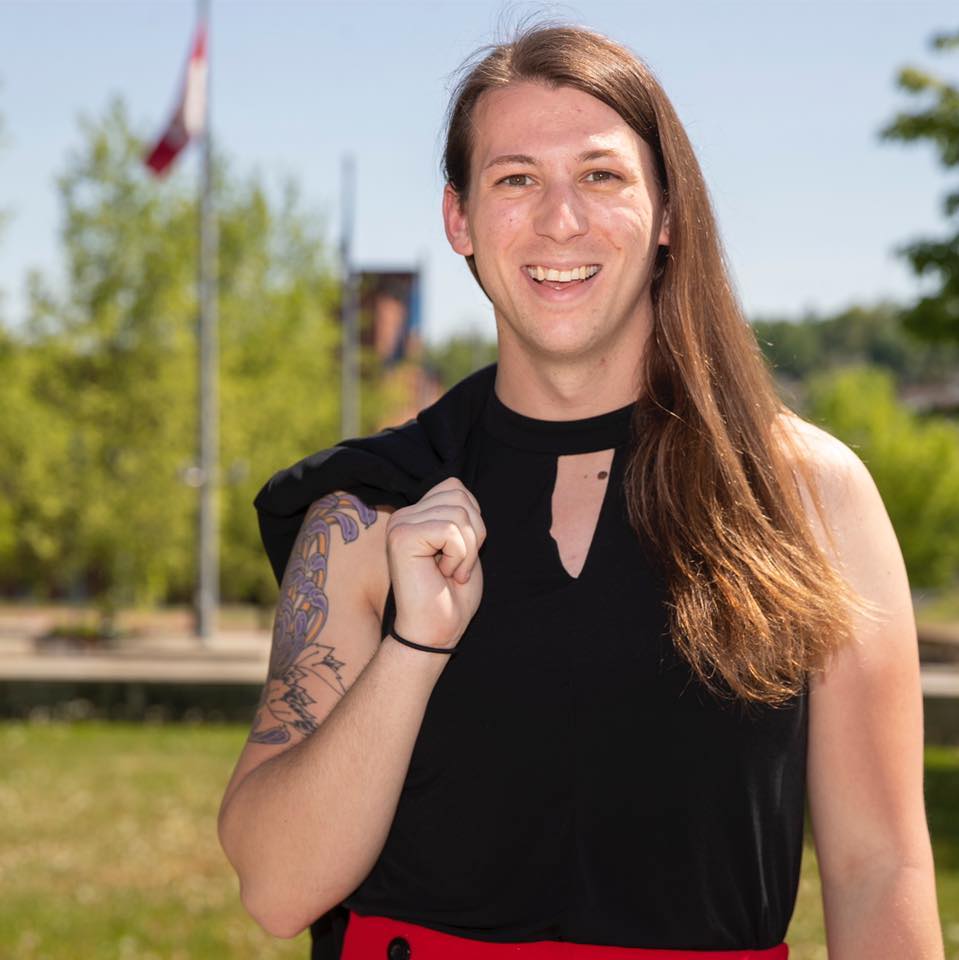
Wrapping up Women’s History Month and National Out to Win Day, Rep. Taylor Small gives us insight on the importance of community for women who are running and the power that your voice as an LGBTQ+ person. Rep. Small was elected to the Vermont House of Representatives as the first openly trans legislator in Vermont and fifth openly trans official elected in the nation. We sat down to ask her to share her thoughts at the end of Women’s History Month, here is what she had to say.
Victory Institute: Who are some women that you look up to?
Taylor Small: “Rep. Danica Roem, just to leading the way and showing the power of trans representation on the state level. And then locally, Senator Kesha Ram, she has been in politics for a little bit now, but she was the youngest woman in Vermont legislature when she first ran and then served for eight years and just made history by becoming the first woman of color in our state senate this year.”
Rep. Danica Roem was the first out trans person to be elected to the Virginia General Assembly, and in January 2018 became the first to both be elected and serve while openly transgender in any U.S. state legislature. Senator Kesha Ram served in the Vermont House of Representatives representing Burlington, Chittenden District 6-4, from 2008 to 2016. She now serves as a State Senator in Vermont.
VI: What is it like to be a woman running for and serving in elected office? Specifically, if you feel comfortable, how has being openly trans while running and serving impacted your work?
TS: “So you know Vermont is a special place. I know how unique my experiences are, especially running a political campaign with trans experience and honestly, it has made me feel even more connected to community. I think what has really been powerful in my first year, is the network of women. Whether they are cisgender, trans, anywhere on the spectrum, really uplifting and supporting one another. I think I wouldn’t really be able to do this work if it were not for the network of friends, family, and colleagues that I have here with me. It’s a pretty powerful time.”
Having a sense of community for LGBTQ+ folks is crucial for survival. Community within womanhood is also a crucial aspect of survival, specifically women who are running or are already in elected positions. Victory found that LGBTQ+ women win at higher rates but we also found that LGBTQ+ women are less likely to run when compared to LGBTQ+ men, representing just 31% of endorsed candidates in the last decade. Download the full findings and analysis here. In recent trends, we see that when women see other women running, it encourages them to run, and this unspoken dynamic is crucial for LGBTQ+ women who are thinking about running. We then asked Rep. Small about her previous advocacy work and her recent bill, H.128 which recently passed in the House.
VI: Prior to being a representative in Vermont, you have a lot of prior experience advocating for your fellow Vermonters. How has this shaped and/or influenced your political framework?
TS: “I think the beautiful thing about my prior work is really the lens that I get to bring to the Statehouse and understanding how our systems are impacting the most vulnerable Vermonters. Also just understanding the impact of the legislation that we have put forward this year and what’s been put forward in the previous years, knowing that we still have ways to change and not just in incremental small fashions but really understanding and reimagining the ways in which our system can support everyone in the mix instead of the select few that they do right now.”
VI: Recently your bill H.128 passed which seeks to ban the LGBTQ+ Panic Defense. How will this impact LGBTQ+ Vermonters? How does this directly impact you and what does this bill represent for you?
TS: “The bill is amazing within itself and taking that step forward and recognizing the dignity and the rights that we as LGBTQ people deserve. I think what I appreciate most about this bill is the educational awareness that’s it’s bringing to folks who are cisgender and straight and have never had to think about whether or not they would be assaulted or murdered because of their sexuality or gender identity. It has really blossomed how far we need to go when it comes to equity work and personally what’s really impacting me is how quickly it’s moving. Especially after a year where we see state after state introducing and moving forward on anti-trans legislation.
It feels both unique and heartwarming and just honoring here in Vermont that, one, we do not have those bill coming forward. Instead, we are working on passing this legislation that honestly, will not have a huge impact in relation to our judicial system because it’s not typically used here in the state of Vermont unless it’s within a prejudicial court or jury, but it will say that you have rights. When police were testifying on this bill what stood out to me is that they supported it and they understood by passing this legislation, what we are saying is those who have been victimized, those who have experienced this hate, bias, and prejudice are more likely to come forward because they see laws that are actually supporting them rather than the history that we have, which is laws banning our existence.”
An important step to reassure LGBTQ+ folks that they matter is having inclusive policies that state that policy makers will not tolerate any type of discrimination towards LGBTQ+ people. The nation’s LGBTQ+ community must be assured that their lives matter. One step in this direction is creating and passing legislation like H. 128. Beyond legislation like H. 128, there are other critical steps legislators can take to improve the lives of LGBTQ+, women, and femmes.
VI: What do you think women in Vermont need right now?
TS: “It’s been the fight for a long time but pay equity is what we need in Vermont. And recognizing just the drastic difference that men make in the same position. I think what is even more detrimental is how we look down upon predominantly women careers, so when we think about childcare workers, our teachers, and our nurses, we are paying them less for equal, if not more work and that just needs to change. I would have thought we would have got there already but my goal is to see it happen in my lifetime.”
VI: If you could say anything to young trans girls and femmes, what would It be?
TS: “One, you are valid and you are valid now. Secondly, your voice is powerful and you can start using your voice at any time. Something that I’ve learned is that we put this focus on adults as the people full of wisdom and now recognizing our youth and the power they have. I wish someone had told me to start using your voice now, you have the voice, and you have the power now, you don’t have to wait until you’re an adult to share it.”
As we approach National Out to Win Day, we must continue to prioritize and uplift the voice of upcoming LGBTQ+ political leaders. Rep. Small highlights how important it is to use your voice. To support our LGBQ+ youth in particular, Victory has programs like the Victory Congressional Internship that brings LGBTQ+ undergraduate students to D.C. to prepare young LGBTQ+ people to become informed decision-makers and influential leaders who can change their communities and our world.


